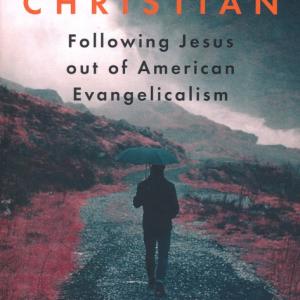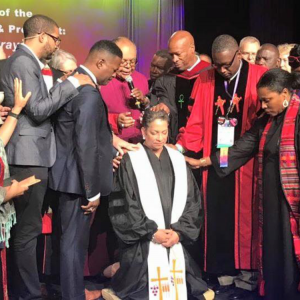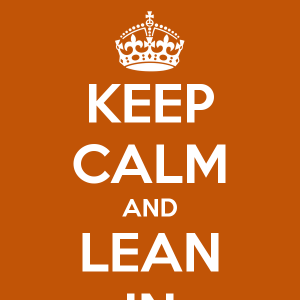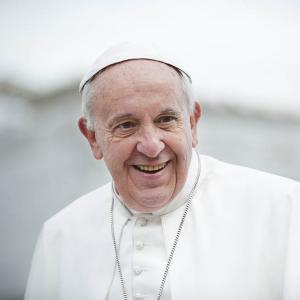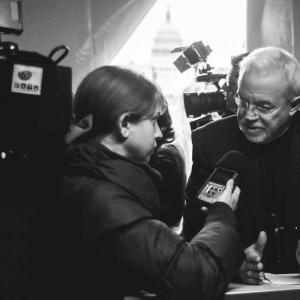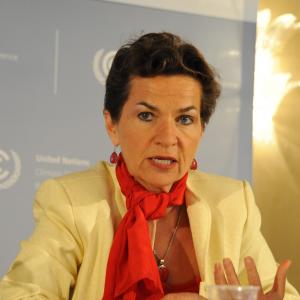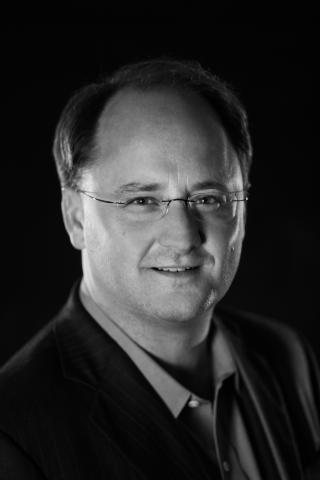
As former CEO of Sojourners, Rob Wilson-Black managed the organization, working closely with the board of directors and president Adam Taylor. Sojourners resources the 5 million people who visit sojo.net annually and the tens of millions of people who Sojourners reaches through our media and events, including the Summit for Change gathering in Washington, D.C. Rob is a liaison to the World Economic Forum, Aspen Institute, and Chautauqua Institution, as well as 25 top national foundations and philanthropists who support Sojourners’ messaging, media, mobilizing, advocacy, and convening.
A graduate of the University of Chicago (Ph.D., A.M.) under Martin E. Marty and the University of Richmond (B.A., M.H.), Rob served as a college and seminary vice president for 10 years before joining Sojourners in 2009. He is the author of the newly released The End of College: Religion and the Transformation of Higher Education in the 20th Century (Fortress Press, 2021), numerous articles, blogs, and podcasts. In 2017, Rob was awarded an honorary doctorate from Franklin College in Indiana for his work as a “scholar, leader and advocate for religion.” He was an editor of the multi-volume Dictionary of Modern American Philosophers and writes for Sojourners. He has given talks on campuses throughout the world, including Dartmouth (Orr Lecture), Duke, UC-Berkeley, Northwestern, Georgetown, the University of Chicago, Princeton, Baylor, the University of Cape Town, the Pontifical Gregorian University in Rome, and at the World Economic Forum. He served as the founding board chair of the National Museum of American Religion; chairof the alumni council at the University of Chicago Divinity School; treasurer of the Wild Goose Festival; and is the out-going appointed clerk of the Sidwell Friends School parents association. He served as an advisor to the New America Foundation’s Smart Strategy Initiative, and serves as a member of the president’s advisory board of the University of Lynchburg in Virginia.
As a young evangelical, Rob checked off many of the suggested boxes: have Jerry Falwell sign your Bible, attend Amy Grant concerts and Billy Graham Crusades, and meet with Chuck Colson, Carl F. H. Henry, and Richard Viguerie. Later came experiences of meeting with people of faith in Gaza, Guatemala, South Korea, and South Africa; marching on Washington for numerous justice issues; integrating his block on Chicago’s South Side; spending time with Rev. John R.W. Stott; and bringing Martin Luther King III and Julian Bond to university events for racial reconciliation initiatives. He lives in Reston, Va., with his wife of 29 years, Rev. Juli Wilson-Black, a Presbyterian minister in Alexandria, Va., and their children: Hannah (21), Claire (18), and Owen (14). They travel with him to many of the 65 countries he has visited for research, speaking, and education.
Posts By This Author
Stories from the Knife's Edge
“THERE IS SOMETHING off-putting about a nonfiction story in which the I is infinitely more sinned against than sinning,” opines Phillip Lopate, the dean of nonfiction literature.
David Gushee’s autobiographical Still Christian may fall short in chronicling his own “sinning,” but this is ultimately redeemed by his self-reflective amusement at surviving the “skin of my teeth” narrative. After all, he notes that he is an ethicist who has “flexibility about convictions,” which is confession enough. As with many good books, the title masks a more accurate if less marketable headline. In Gushee’s case, it might be: “Still Baptist: A Southerner grapples with his diary.”
Gushee is an ethics professor at Mercer University, a church pastor, and the recently elected president of the American Academy of Religion. Reading this worthy extended essay on a Baptist life, I felt we were traveling together in an action movie where the hero barely escapes from an exploding planet. In Gushee’s story, those religious flames pushed us forward toward safety, merely scorching our heels, rather than pulling us backward into the lava-like funnels of religious fervor.
This was not Hollywood, however, but real life for Gushee and millions of us left orphaned by an originally capacious Southern Baptist planet that had, by 1993, imploded of its own weight. This ecclesial destruction revealed that the often-quoted Baptist ideal of “sole competency to interpret the scriptures” did not make room for the institutional continuity that “moderates” sought, but did allow for a fundamentalist (even neo-Calvinist) takeover.
Following the Good News Toward Christian Unity
This week Rev. Teresa Hord Owens was elected General Minister and President of the Christian Church (Disciples of Christ), becoming the first African-American woman installed as head of a denomination (although there have been moderators like Belva Brown Jordan, leading pastors, and bishops of other denominations over the decades).
Much can and should be made of the firsts represented by her election.
What Do We Owe One Another? Chasing Compassionate Conservatism in 2016
When my oldest daughter, Hannah, was in elementary school she asked me to explain the difference between conservative and liberal. I replied, “It’s too complicated.” She said, “Try me.” So I told her my best description was a metaphor, that of life as a high-wire act. Liberals are worried that without a net below the high-wire act of life, the performer may die or suffer when they fall. Conservatives are worried that if a net is built below, the performer may not be concerned enough about falling and use the net as a hammock. She paused for a moment and responded, “Why not build a trampoline below, so if they fall it will send them right back up?” Indeed.
Denying Christ and Getting to the Truth
Teens across the world are still flocking to monks in France to deepen their Christian faith? Yes — and my family and I remained in awe of its tent-dotted fields and large scale kitchens staffed all by volunteers.
The Taize community of brothers from across Christian traditions — alongside sisters from a Catholic order — host religious thinkers, leaders, practitioners, and especially youth who want to engage biblically around issues spanning peace, justice, the arts, service, and Christian practice. We came to Taize as a spiritual "vacation-pilgrimage" during their 75th anniversary celebration and the 10th anniversary of Taize's founder’s death, joining religious leaders from around the world.
For American Christians who may be stuck in habits of religious thinking that promote "all or nothing," "left and right" interpretations of the Scriptures, Taize invites us to sing together and investigate the scriptures from a fresh global perspective.
In Korea, Christians Wrestle With Identities

MyImages - Micha / Shutterstock
IN 1900, 1 percent of Korea’s population was Christian. By 2010, roughly 3 in 10 South Koreans were Christian, including members of the world’s largest Pentecostal church, Yoido Full Gospel Church, in Seoul. The faith has exploded, and so now have the questions.
Each of the past several summers in Washington, D.C., I’ve met with 50 young Christian leaders from South Korea to discuss biblical social justice as it applies to their Korean context and perspectives on our shared Christian faith. They highlighted challenges they face, such as confusing financial and church growth with God’s favor; the stress that youth face in their ambition for a viable career; and the roles sometimes assigned to women and men in both church and society.
They also posed a critical question: Do you think of yourself as a Christian first or an American first? Out of our deep exploration came three convictions: First, national identity can be a deep blessing, but it cannot be our primary identity. Second, discussion works best without immediately judging our priority lists or our neighbors’ lists harshly. Third, the order of our lists should never be the cause of harm.
These rich dialogues with Korean faith leaders set the stage for an unusual opportunity: attending the Global Forum for the Future of World Christianity held on Jeju, the politically contested island off the coast of South Korea.
Lean In: How Men Can Support Gender Equity
Then there’s the more recent pragmatic argument: you should want gender parity because of how it will help your own family, business, or city. In short, inequality and violence harms the women who are your partners and friends. Some suggest that it’s mighty convenient that men are ready to take a stand when we finally see how it benefits us. But one female friend advised me that men should ease up on themselves: “Just deliver gender parity, and we’ll gladly forget HOW exactly you got there. Deal?”
According to the Global Gender Gap Report released at the latest World Economic Forum, it will take 80 years to reach gender parity in pay, status, governance, etc. In the year 2095, my daughters would be approaching 100 years old, and my mother, wife, two sisters, aunts and so forth would be long dead along with me and all the women that I care about today. Why wait 80 more years? It’s time for all men to lean in and help cut that number in half (and then some).
I’ve joked before that having two older sisters is what every boy needs to make the world spin around more equitably. If not biological sisters, then let’s find older sisters for every boy. Hopefully with gender parity cut down to 20 years from 80, my 7-year-old son will need to work twice as hard to “get ahead,” since he’ll finally be competing fairly with the other half of the sky. May it be so.
Jim Wallis Talks the World Economic Forum from Davos, Switzerland
Listen as Jim Wallis talks to Sojourners CEO Rob Wilson-Black about giving the send-off speech on values at the World Economic Forum, where the pair brushed shoulders with some of the most prominent business minds. Here's a brief look at what Jim was trying to do with his talk:
"The pope reminded us about the excluded. This gathering is the most included gathering in the world. You are the most included people in the global economy. How will the most included reach out to the most excluded and bring them in to the global economy? That's what I want [World Economic Forum attendees] to ask themselves."
LISTEN: Jim Wallis Talks Pope Francis
Listen in as Jim Wallis and Sojourners CEO Rob Wilson-Black kick off the new year with a discussion on Pope Francis and the new Pope's influential presence in all kinds of media.
LISTEN: Jim Wallis and Sojourners CEO Rob Wilson-Black Talk Fasting
Listen as Sojourners CEO Rob Wilson-Black asks Jim Wallis about his recent fast for immigration reform.
Four Questions for Christiana Figueres
Bio: Executive Secretary of the U.N. Framework Convention on Climate Change, figueresonline.com
1. How much did religious leaders advocate against global warming at the United Nations climate talks this past winter in Durban, South Africa?
I have been very impressed over the past few years at how the faith community is getting more and more involved in climate issues; they are concerned about what humanity is doing to creation. In Durban we had, of course, Archbishop Tutu, who was there as the local leader of the faith community, but we also had probably the largest participation of the faith community we’ve ever had, from religions from around the world, trying to support the process.
2. So the U.S. is unusual in that the reality of climate change is sometimes contested on religious grounds here?
Yes, that is a unique situation.
3. How are military entities engaging with climate change?
It’s very interesting how the military has become acutely aware of the fact that climate represents, probably, the most difficult security issue that they are going to face over the next 20 years, just because of migration. We see areas that are going to be underwater, that are going to be in drought—there is going to be a massive migration such as we have never seen, which represents a severe security problem for what are currently stable states.
The U.S. military has already done quite a few studies about the implications of climate change on the security and the borders of the United States. And they, I think, are taking on much more of a progressive role; they’re wanting to contribute to addressing climate change. They are already looking at investing in new technologies that are much more efficient in the use of energy. They’re actually taking good leadership.
